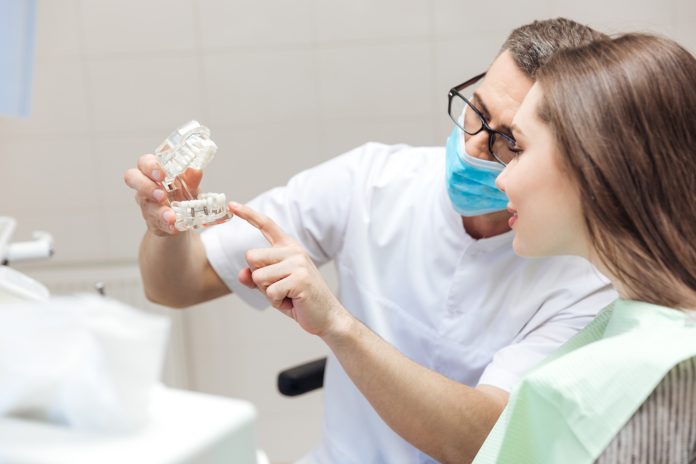Every year, around 5 million Americans have their wisdom teeth removed.
Wisdom teeth are by far the peskiest teeth we have! Growing in later in life than the rest of your teeth, you often don’t have the room to allow for them in your mouth which leads to a lot of issues.
If you’re having yours removed, you might feel a little worried. But, there really isn’t any need. With so many removed every year, dentists definitely know what they’re doing!
But, to help with your anxieties, here’s what to expect, including all the facts about wisdom teeth removal recovery.
When Do Wisdom Teeth Need to be Removed?
Your wisdom teeth will usually appear when you’re between 17 and 25, but they could come in earlier or later. For some people, their teeth will grow in without a problem. For others, their wisdom teeth will cause a problem as soon as they appear in your gums.
Here are some of the issues you could face.
Impacted Teeth
Wisdom teeth can struggle to push through the gum when they’re growing in, becoming trapped. This is known as an impacted wisdom tooth.
Growing at an Angle
It’s very common for wisdom teeth to grow at an angle. They’ll start to push against your other teeth, causing damage as they grow – definitely not good!
Pain and Crowding
If you don’t have enough room, you’ll experience crowding and pain as your tooth grows. Wisdom teeth in overcrowded can also cause damage to other teeth as they try to push in.
Difficult to Clean
Some wisdom teeth are simply too difficult to keep clean. Without cleaning, you may experience cavities and gum disease.
What’s the Dental Procedure for Removal?
Wisdom teeth removal is a type of dental surgery, and it’s one of the most common out there. Your surgery will take around 45 minutes to an hour typically, with a recovery time of around two weeks.
During the procedure, a qualified dentist or dental surgeon will make sure you receive anesthesia. Most people will only need local anesthesia to numb the area, while others will be sedated so that you don’t experience any of the surgery.
Your dentist will then make an incision in the gum that reveals the tooth and any bone blocking access to the root. This bone will be removed. The tooth is then cut into sections that make it much easier to remove.
Once the tooth is removed, the area will be cleaned thoroughly and any debris will be removed. The area is stitched up to speed up healing if necessary, and gauze is placed over it to prevent bleeding.
Will Wisdom Teeth Removal Hurt?
The procedure for wisdom teeth removal shouldn’t be painful. With a great dentist, the area will be fully numb. However, you might experience some pain after the procedure that means you have to be somewhat careful when eating and drinking, but that’s all covered in surgery recovery.
What Else Do You Need to Know?
Wisdom teeth removal is very straightforward. But every procedure is slightly different, so it’s wise to ask some questions to your dentist before you turn up on the day. For example:
- What type of anesthesia am I going to receive?
- How complicated will the procedure be?
- Has the tooth caused damage to any other teeth?
- What other treatments might I need after removal?
- Should someone pick me up after the surgery?
Also, ask them how you can best prepare for the surgery. For example, do you need to avoid eating, and if so from what point?
If you don’t have a dentist, search for oral surgeon in my area to book your appointment.
What to Expect After the Procedure
Once the procedure is over, you can expect some side effects. Here are some normal after-effects of wisdom teeth removal:
- Bleeding
- Swelling
- Bruising
- Pain
If any of these are excessive, get in touch with your dentist or visit the emergency room.
The Recovery Process of Wisdom Teeth Removal
After having your wisdom teeth removed, recovery tips can help speed up how quickly the wound heals. Be aware of all the things you can do to help.
Pain Management
Many people manage pain using over-the-counter medication in the days after the surgery, like Tylenol. You may also receive prescription pain medication from your dentist, especially if you’ve had bone removed. Using a cold pack and holding it against your jaw can reduce both pain and swelling.
Rest After Surgery
Try to rest after the surgery. You can get back to normal activities the day after wisdom teeth removal, but don’t do anything that could shift the blood clot from the area of removal.
What to Drink and Not Drink
Drink plenty of water and stay hydrated after surgery. Avoid alcohol, carbonated drink, caffeine, and hot beverages on the day after removal. Don’t drink through a straw as this can shift the blood clot.
What to Eat and Not Eat
Don’t eat any hard foods in the day after the surgery. Stick only to soft foods, and then semisoft foods when you feel ready to do so. Chewy, spicy, hard foods are a no-go for at least the first day, if not longer.
How to Clean Your Mouth
You shouldn’t brush your teeth or rinse your mouth the day after surgery. But, after 24 hours normal brushing can be resumed, as long as you’re gentle around the wound.
Remember Everything About Wisdom Teeth Removal Recovery
The procedure of removing your wisdom teeth isn’t something you need to be too clued up about. However, it is absolutely vital you remember everything about wisdom teeth removal recovery to ensure quick and seamless healing.
If you found this article useful, be sure to check out more on our website! We write across a range of topics including health, business, and entertainment.









